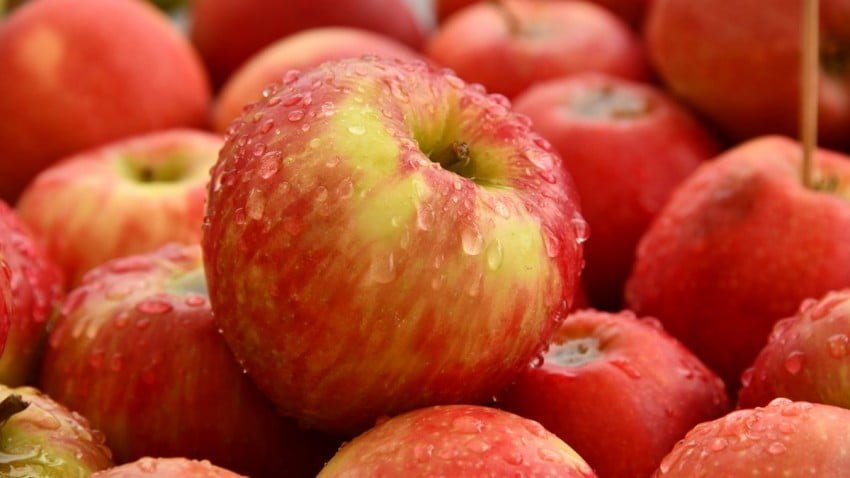EastFruit analysts report that contrary to the projected growth in apple production in the Russian Federation due to the increase in areas under intensive orchards, the prices for all the main apple varieties today are significantly higher than in November 2019.
According to the monitoring of the wholesale prices, the average price for high-quality apples on the Russian market is 60 rubles/kg (0.77 USD per kg). In contrast, a year ago, the price of winter apple varieties did not exceed 45 rubles/kg (0.69 USD at the exchange rate at that time).
Looking at the increase in prices by 33% in rubles, we may conclude that the supply of apples has decreased since prices are growing so fast. However, there are other important factors to consider.
First of all, Russia continues to be dependent on imports of fresh apples since the volume of these fruits grown in Russia is not sufficient to satisfy domestic demand, especially in the segment of high-quality apples. Accordingly, the apple prices in Russia depends on imports rather than on the supply of domestically produced apples.
This means that the price on the domestic market is influenced by the ruble exchange rate against the US dollar and the euro. This year, the ruble is 20% cheaper against the US dollar and 31% cheaper against the euro. In other words, the wholesale prices for apples on the Russian market in euros are currently absolutely identical to the prices for apples in the same currency a year ago.
Also, it is important to consider the situation on the market of the leading apple exporter to Russia, that is, Moldova. In this country, estimates of the apple production volume in 2020 regularly fall. According to market participants, apple production in Moldova may be 30-40% lower than last year; that is, the supply of apples in Moldova will decrease by more than 100 thousand tons. Accordingly, the prices for apples in Moldova remain relatively high compared to the last year.
Serbia is another large supplier of apples to Russia. On the Serbian market, prices are also significantly higher than last year, since the demand for apples and apple prices in the EU have grown considerably. Naturally, Serbia exports more apples to the EU countries.
Besides, Russia still has not recovered their access to apples from China, which used to be the largest apple exporter to Russia. Earlier at least small volumes of Chinese apples sneaked into the Russian market via transit through the countries of Central Asia, but the Covid-19 pandemic completely killed this re-export trade.
By the way, the lack of re-exported apples from the EU and Ukraine is another reason affecting prices in the Russian Federation at present. The former main re-exporter Belarus is currently going through massive anti-government protests, and its borders with the Russian Federation are controlled more strictly.
Of course, frosts have caused significant damage to apple orchards in Russia. However, given the rapidly growing areas of intensive orchards in the country, the total apple yield is unlikely to decline. The key factors influencing the wholesale prices of apples in the Russian Federation were the weakening of the ruble, higher apple prices in the EU, sharp decline in the apple produce in Moldova, banned apple supplies from China, and the absence of re-export to Russia.
It would seem that due to these factors, local fresh producers can make good money this season, at least if counting income in rubles. Besides, prices for local apples in the Russian Federation began to grow from the very beginning of the season, and the prices for popular varieties like Golden Delicious and Gala was rarely announced below 50 rubles/kg – 20% higher than at the beginning of the 2019 season.
However, it turns out that Russian apple producers will still earn less than a year earlier. They pay in euros for the material and technical resources required for their business: seedlings, equipment for storing, processing, sorting, and packing apples, etc. Taking into account that the yield on many farms was lower due to losses from frosts and the operating costs were higher due to the devaluation of the ruble, we expect the real income of Russian apple producers to decline.
The use of the site materials is free if there is a direct and open for search engines hyperlink to a specific publication of the East-Fruit.com website.




